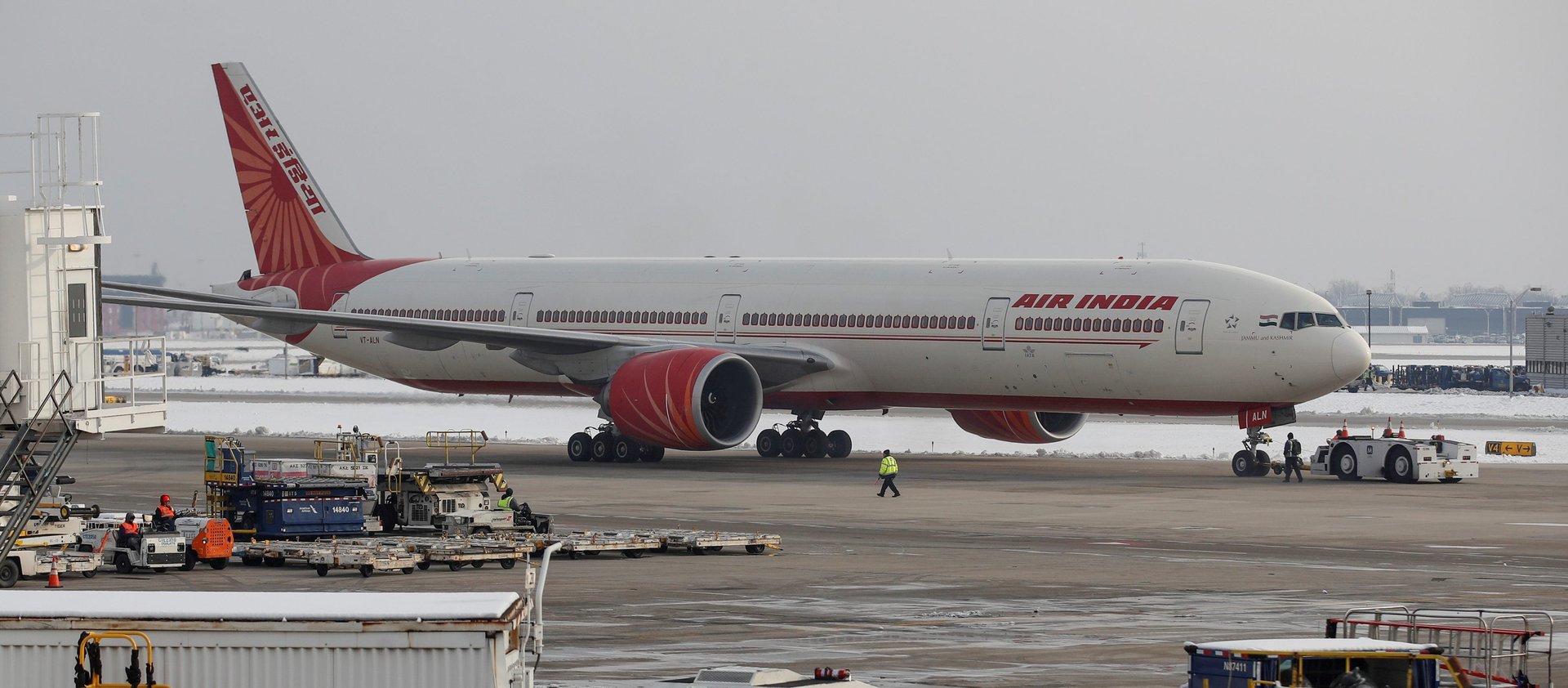Can Tata ensure Air India’s survival?
This post has been updated.


This post has been updated.
One of India’s biggest and oldest companies has become the new owner of its debt-ridden national carrier Air India.
On Oct. 8, the Narendra Modi government announced that Tata Sons had won the bidding process for it, offering 18,000 crore rupees ($2.35 billion).
A flight back to glory?
Seasoned aviation experts believe that with the Tata Group, Air India has a chance of “returning to its past glory.”
“They will ensure its revival and make it into one of the best airline services worldwide,” said Jitender Bhargava, former executive director of Air India and author of The Descent of Air India. “When Air India was under the Tata Group prior to the 1970s, it was known for its quality service and even now, another airline Vistara—in which Tatas have invested—is known for its premium quality.”
Vistara, a joint venture between the Tatas and Singapore Airlines, was recently recognized as the best carrier in India at the 2021 World Airline Awards.
The Tatas’ 90-year connection with Air India
At present, besides Vistara, the Tatas are invested in AirAsia India, another joint venture with Malaysia’s AirAsia Berhad. With Air India now in its kitty, the group will become a major player in the Indian aviation industry.
In the 1930s, Tata was a pioneer in Indian commercial aviation when it founded Indian Airlines. In 1932, it launched another airline, Air India, which in 1953 was taken over by the Indian government, in spite of the company’s objections.
“The airline became the victim of government ownership and bureaucracy,” Bhargava says. “The frequent change in the chairmanship also did not help. There were men who succumbed to political pressure, or did not have adequate knowledge of the aviation industry.”
Now, after nearly seven decades, the carrier is all set to return to its original owners. It won’t be straightforward, particularly since Vistara and AirAsia are in the red, but some analysts are confident.
“In aviation, there is a 10-year break-even point for making profits. It’s been just around six years since the Tata Group has invested in AirAsia and Vistara,” Mark Martin, founder and CEO at aviation consulting firm Martin Consulting told Quartz earlier this month. Bhargava echoes similar views and believes that the “deep pockets” of Tata are enough to secure a bright future for Air India.
“India is a price-sensitive market, so getting immediately into profit will be tough,” he warns.
Air India’s disastrous finances
The Indian government first announced plans to privatise Air India back in 2017, in its budget session for 2017-18.
The airline’s losses and debts have been mounting for years. The airline has never made a profit since its merger with Indian Airlines in 2007. For the financial year ended on March 31, 2021, it reported a net loss of 10,000 crore rupees. Air India’s customer base has shrunk, partly because of intense private-sector competition, but also because its cost-cutting has diminished its customer service.
While analysts generally point at red tape and mismanagement within the organization, a number of external factors have made things worse: depreciation of the rupee, the high price of aviation turbine fuel, and the rising cost of debt. Fuel suppliers threatened to cut the airline off in 2019 over the non-payment of accumulated bills.
Until February, the airline’s debt stood at around Rs60,430 crore rupees. However, the winning bidder will only be required to assume part of the debt.
The future of Air India
One of Air India’s advantages, however, is its international slot, which in the right hands could help provide competition for global rivals.
“If the privatization of Air India takes place and they are able to develop a business model that is meaningful and brings value to the new shareholders and to India, the scope and scale of that airline is endless,” said Emirates president Tim Clark in an interview with Moneycontrol. “And that is what they need to do. Will it affect us? Of course, it will.”